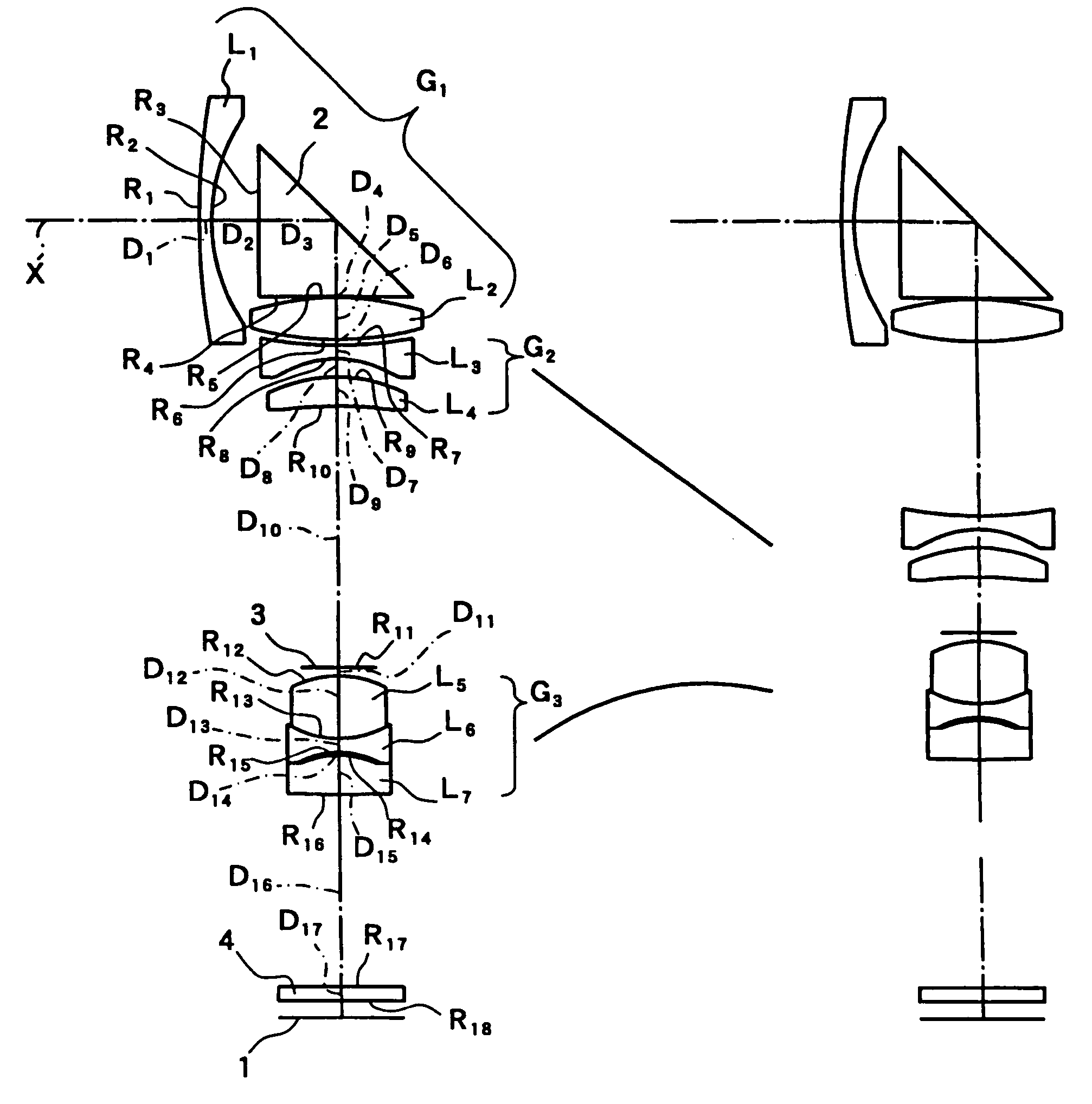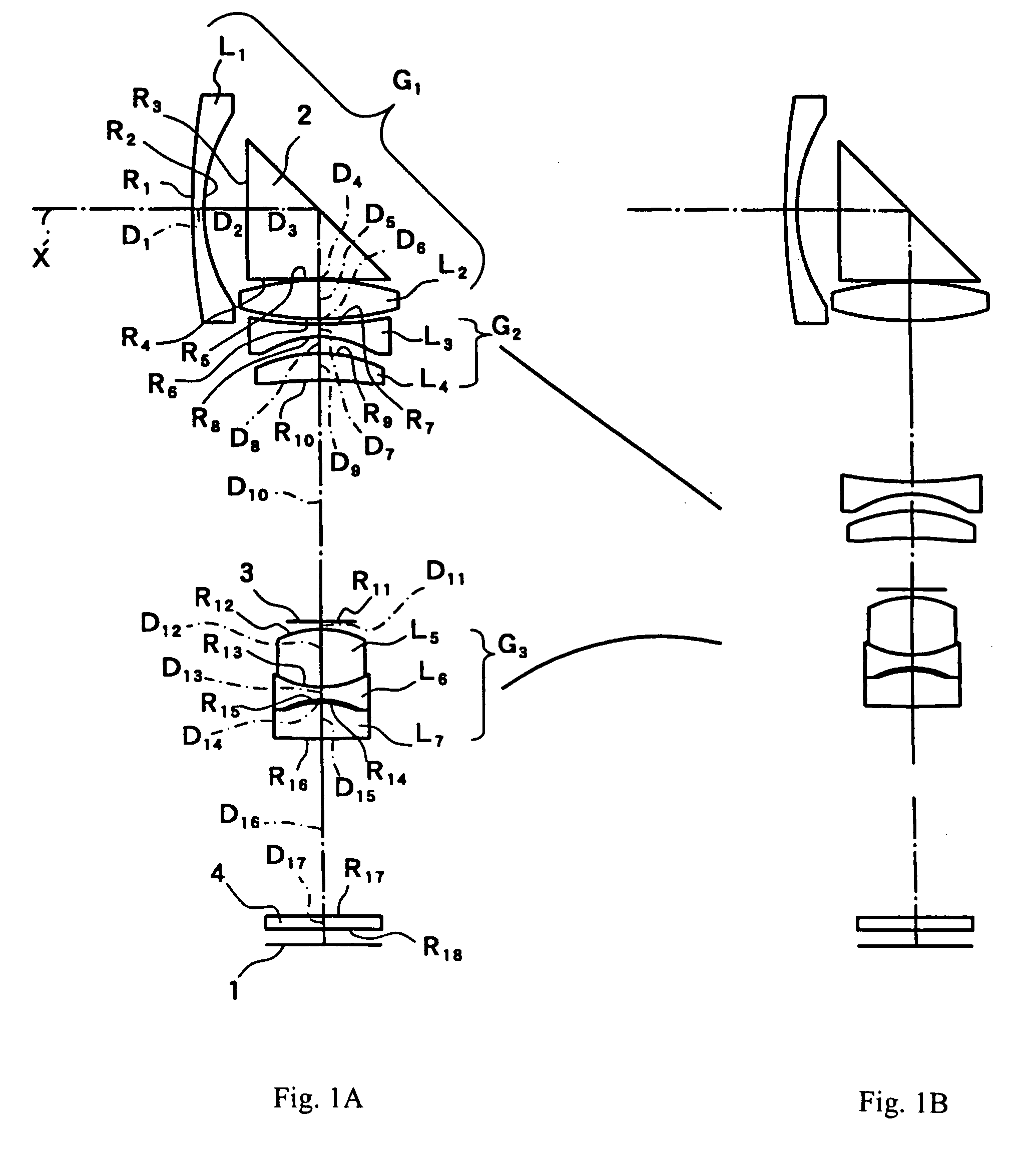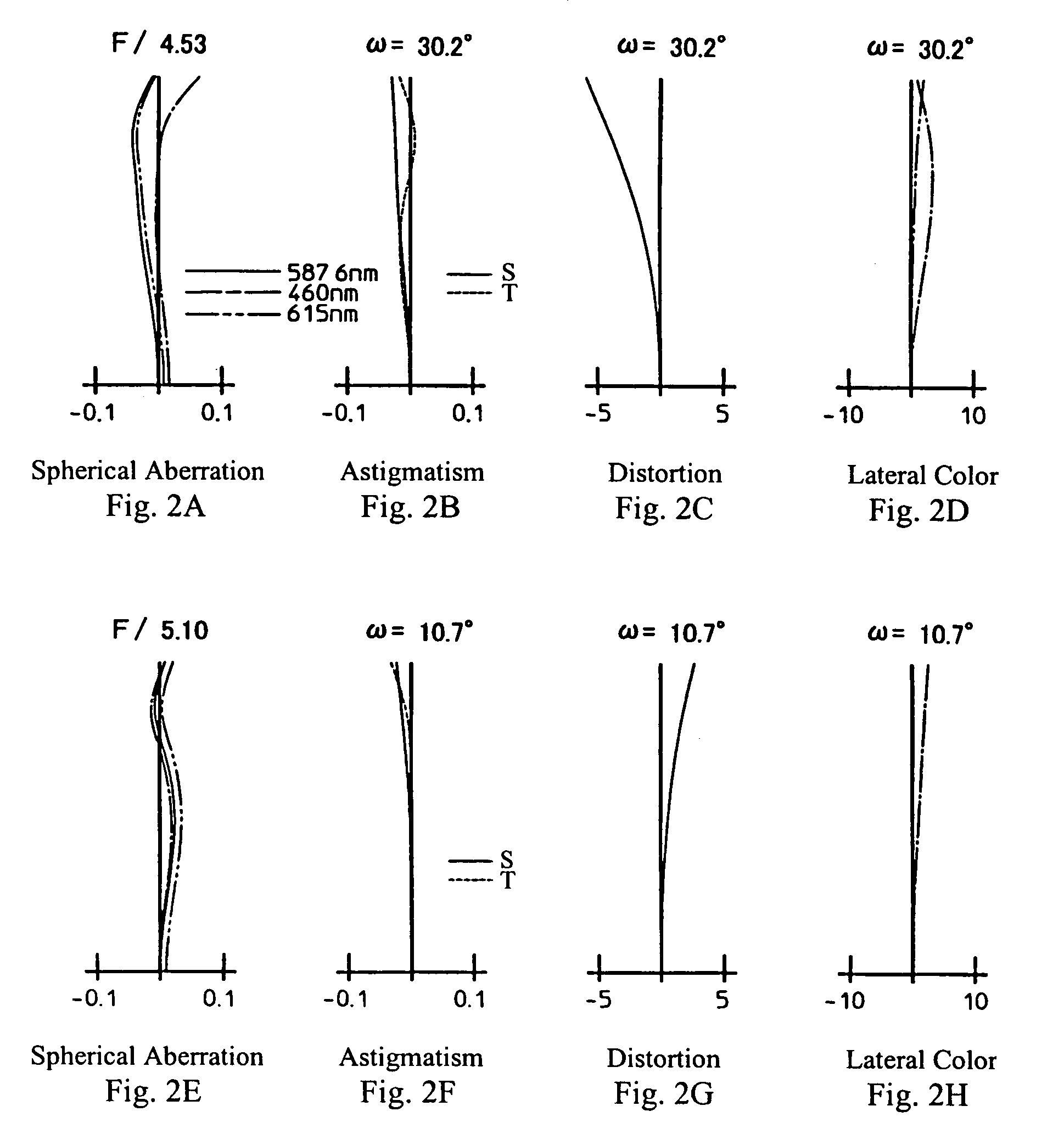Zoom optical system
a technology of optical system and zoom lens, applied in the field of zoom optical system, can solve the problems of limiting the miniaturization and reducing the cost of the zoom lens, and achieve the effect of inexpensive construction
- Summary
- Abstract
- Description
- Claims
- Application Information
AI Technical Summary
Benefits of technology
Problems solved by technology
Method used
Image
Examples
embodiment 1
[0034]FIGS. 1A–1B show cross-sectional views of the zoom optical system of Embodiment 1 at the wide-angle end and at the telephoto end, respectively. As shown in FIG. 1A, the zoom optical system of Embodiment 1 includes, arranged in order from the object side, a first lens group G1 having positive refractive power, a second lens group G2 having negative refractive power, and a third lens group G3 having positive refractive power. The straight line adjacent reference symbol G2 and the convex upward line adjacent reference symbol G3 taken together indicate that as the second lens group G2 moves at a constant speed along the optical axis X between the wide-angle end shown in FIG. 1A and the telephoto end shown in FIG. 1B, the third lens group G3 moves at a varying speed along the optical axis X.
[0035]In Embodiment 1, the first lens group G1 includes, arranged in order from the object side, a first lens element L1 having negative refractive power, a meniscus shape, and a convex surface ...
embodiment 2
[0048]FIGS. 3A–3B show cross-sectional views of the zoom optical system of Embodiment 2 at the wide-angle end and at the telephoto end, respectively. Embodiment 2 is similar to Embodiment 1 and therefore only the differences between Embodiment 2 and Embodiment 1 will be explained. Embodiment 2 differs from Embodiment 1 in having a third lens element in the second lens group G2, which becomes the fifth lens element L5 as counted from the object side of the zoom optical system. Embodiment 2 also differs from Embodiment 1 in its lens element configuration by having different radii of curvature of the lens surfaces, different aspheric coefficients of the aspheric lens surfaces, different optical element surface spacings, and some different refractive indexes and Abbe numbers.
[0049]The second lens group G2 includes, arranged in order from the object side, a third lens element L3 having a biconcave shape and a lens component formed of a fourth lens element L4 having a biconcave shape that...
PUM
 Login to View More
Login to View More Abstract
Description
Claims
Application Information
 Login to View More
Login to View More - R&D
- Intellectual Property
- Life Sciences
- Materials
- Tech Scout
- Unparalleled Data Quality
- Higher Quality Content
- 60% Fewer Hallucinations
Browse by: Latest US Patents, China's latest patents, Technical Efficacy Thesaurus, Application Domain, Technology Topic, Popular Technical Reports.
© 2025 PatSnap. All rights reserved.Legal|Privacy policy|Modern Slavery Act Transparency Statement|Sitemap|About US| Contact US: help@patsnap.com



